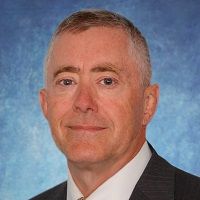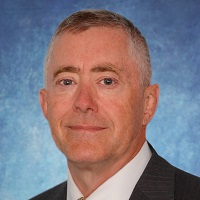What to Do With Your 401(k) When You Leave Your Job
Instead of cashing out or leaving your 401(k) account behind, consider consolidating your savings in your new employer's plan. Here's how.


Profit and prosper with the best of Kiplinger's advice on investing, taxes, retirement, personal finance and much more. Delivered daily. Enter your email in the box and click Sign Me Up.
You are now subscribed
Your newsletter sign-up was successful
Want to add more newsletters?

Delivered daily
Kiplinger Today
Profit and prosper with the best of Kiplinger's advice on investing, taxes, retirement, personal finance and much more delivered daily. Smart money moves start here.

Sent five days a week
Kiplinger A Step Ahead
Get practical help to make better financial decisions in your everyday life, from spending to savings on top deals.

Delivered daily
Kiplinger Closing Bell
Get today's biggest financial and investing headlines delivered to your inbox every day the U.S. stock market is open.

Sent twice a week
Kiplinger Adviser Intel
Financial pros across the country share best practices and fresh tactics to preserve and grow your wealth.

Delivered weekly
Kiplinger Tax Tips
Trim your federal and state tax bills with practical tax-planning and tax-cutting strategies.

Sent twice a week
Kiplinger Retirement Tips
Your twice-a-week guide to planning and enjoying a financially secure and richly rewarding retirement

Sent bimonthly.
Kiplinger Adviser Angle
Insights for advisers, wealth managers and other financial professionals.

Sent twice a week
Kiplinger Investing Weekly
Your twice-a-week roundup of promising stocks, funds, companies and industries you should consider, ones you should avoid, and why.

Sent weekly for six weeks
Kiplinger Invest for Retirement
Your step-by-step six-part series on how to invest for retirement, from devising a successful strategy to exactly which investments to choose.
It goes without saying that the idea of people staying with a single employer for their entire working lives, and receiving an engraved gold watch and a pension upon retirement, is out of date.
According to the U.S. Bureau of Labor Statistics (BLS), the youngest Baby Boomers, born between 1957 and 1964, held 12.7 jobs on average from ages 18 to 56.
Furthermore, the BLS found that, in January 2022, the median number of years that paid employees had been with their present employer was 4.1 years.
From just $107.88 $24.99 for Kiplinger Personal Finance
Become a smarter, better informed investor. Subscribe from just $107.88 $24.99, plus get up to 4 Special Issues

Sign up for Kiplinger’s Free Newsletters
Profit and prosper with the best of expert advice on investing, taxes, retirement, personal finance and more - straight to your e-mail.
Profit and prosper with the best of expert advice - straight to your e-mail.
In today’s highly mobile workforce, consumers need to keep on top of their hard-earned retirement savings. If they’re not careful, they can lose track of their 401(k) savings in their prior employers’ plans when they switch jobs.
Historically, it has not been easy, to put it mildly, for Americans to take their 401(k) balances with them when they leave one employer for another. Without assistance from employers and their plan recordkeepers, the process can take months, costing a lot of time and money. Too often, Americans find it easier to leave their 401(k) accounts behind in their previous employers’ plans, or prematurely cash out their 401(k) accounts, after they depart.
Neither of these options is conducive to helping Americans save for a financially secure retirement.
Why you shouldn’t cash out
According to the Employee Benefit Research Institute (EBRI), the retirement services industry’s gold-standard research provider, Americans cash out their 401(k)s after leaving or changing jobs to the tune of $92 billion per year — and pay taxes and penalties on what they cash out.
In addition to paying taxes and penalties on the 401(k) savings they cash out from their previous employers’ plans, those who cash out also forfeit what their 401(k) accounts could have earned if they had remained incubated and invested in the national 401(k) system.
Our own research indicates that a plan participant who chooses to preserve a $7,000 401(k) balance at age 25, instead of cashing it out, would see that amount grow to $86,912 that they can use for income in retirement. Furthermore:
- Preserving a $7,000 401(k) balance at age 25 and another $7,000 balance at age 35 would provide $133,213 in retirement income.
- Preserving $7,000 401(k) accounts at ages 25, 35 and 45, as they go along their journeys toward retirement, would cause those balances to grow to $157,878 in total.
Cashing out can make a big dent in an American’s retirement prospects. The Center for Retirement Research at Boston College found in one of its studies that premature 401(k) account withdrawals can decrease Americans’ income in retirement by an average of 25%.
Why you shouldn’t leave behind your 401(k) savings
Preserving 401(k) savings instead of cashing out when leaving and/or switching jobs is far better than cashing out, but letting 401(k) accounts sit in prior-employer plans isn’t the best course of action either.
Under the Economic Growth and Tax Relief Reconciliation Act of 2001, 401(k) plan sponsors were given the authority to automatically roll small accounts from terminated employees with up to $5,000 into investment vehicles known as safe-harbor IRAs. That same law made principal-protected products — which haven’t yielded significant returns due to low interest rates following the 2008 financial crisis — the only default investment options permitted in safe-harbor IRAs. In addition, many safe-harbor IRAs charge as much as $50 or more in annual administration fees, according to publicly available information.
In other words, leaving behind a 401(k) account in a former employer’s plan, and not taking action to consolidate your savings, can lead to account depletion over the long term.
And the SECURE 2.0 Act of 2022 raised the mandatory distribution limit on small accounts that plan sponsors can automatically roll out of their plans and into safe-harbor IRAs from $5,000 to $7,000, as of December 31, 2023.
This means many more job-changing Americans are at risk of having their stranded accounts in former-employer plans automatically moved into safe-harbor IRAs. In fact, EBRI estimates that throughout this year, 6.7 million Americans who participate in 401(k) plans will switch jobs — and on a one-time basis beginning this year, an additional 1.1 million Americans who left behind small balances in their former employers’ 401(k) plans could immediately become eligible to have their savings wind up in safe-harbor IRAs.
What should you do?
Instead of cashing out or leaving 401(k)s behind, hardworking Americans who switch jobs now have a much better chance of receiving meaningful assistance with taking their 401(k) savings with them to their new employers — and consolidating them in the active accounts in their new employers’ plans.
The Portability Services Network’s digital auto portability solution, which automates the process of moving 401(k) account balances with under $7,000 from plan to plan, went live in November. (I am the CEO of Portability Services Network.) This retirement services industry utility includes, as founding members, some of the largest 401(k) plan recordkeepers.
If the recordkeeper for an employee’s new and/or former employers’ plans are part of the Portability Services Network, consumers can reach out for assistance with 401(k) asset transportation and consolidation.
Don’t let your 401(k) savings be depleted when you switch jobs. Take your 401(k) savings with you from job to job, at every point along your journey to retirement — and optimize your income.
Related Content
- 401(k) Plans: 10 Things You Should Know
- What Is a Starter 401(k)?
- What Is a Safe Harbor 401(k)?
- What to Do if Your Employer Stops Its 401(k) Match
- Pension vs 401(k) Plans: Which Is Better?
Profit and prosper with the best of Kiplinger's advice on investing, taxes, retirement, personal finance and much more. Delivered daily. Enter your email in the box and click Sign Me Up.

Spencer Williams is Retirement Clearinghouse’s Founder, President and CEO and also is the President and CEO of Portability Services Network, LLC. Retirement Clearinghouse is a specialized provider of retirement savings portability and account consolidation services for America’s mobile workforce. Portability Services Network, LLC is a retirement industry-led utility dedicated to the industry-wide adoption of auto portability. Williams is an innovator, including RCH’s singular innovation, Auto Portability, specially designed to help low-income and minority workers. Portability Services Network is built on a foundation of Retirement Clearinghouse’s intellectual property, technology and operations.
-
 Quiz: Do You Know How to Avoid the "Medigap Trap?"
Quiz: Do You Know How to Avoid the "Medigap Trap?"Quiz Test your basic knowledge of the "Medigap Trap" in our quick quiz.
-
 5 Top Tax-Efficient Mutual Funds for Smarter Investing
5 Top Tax-Efficient Mutual Funds for Smarter InvestingMutual funds are many things, but "tax-friendly" usually isn't one of them. These are the exceptions.
-
 AI Sparks Existential Crisis for Software Stocks
AI Sparks Existential Crisis for Software StocksThe Kiplinger Letter Fears that SaaS subscription software could be rendered obsolete by artificial intelligence make investors jittery.
-
 Social Security Break-Even Math Is Helpful, But Don't Let It Dictate When You'll File
Social Security Break-Even Math Is Helpful, But Don't Let It Dictate When You'll FileYour Social Security break-even age tells you how long you'd need to live for delaying to pay off, but shouldn't be the sole basis for deciding when to claim.
-
 I'm an Opportunity Zone Pro: This Is How to Deliver Roth-Like Tax-Free Growth (Without Contribution Limits)
I'm an Opportunity Zone Pro: This Is How to Deliver Roth-Like Tax-Free Growth (Without Contribution Limits)Investors who combine Roth IRAs, the gold standard of tax-free savings, with qualified opportunity funds could enjoy decades of tax-free growth.
-
 One of the Most Powerful Wealth-Building Moves a Woman Can Make: A Midcareer Pivot
One of the Most Powerful Wealth-Building Moves a Woman Can Make: A Midcareer PivotIf it feels like you can't sustain what you're doing for the next 20 years, it's time for an honest look at what's draining you and what energizes you.
-
 I'm a Wealth Adviser Obsessed With Mahjong: Here Are 8 Ways It Can Teach Us How to Manage Our Money
I'm a Wealth Adviser Obsessed With Mahjong: Here Are 8 Ways It Can Teach Us How to Manage Our MoneyThis increasingly popular Chinese game can teach us not only how to help manage our money but also how important it is to connect with other people.
-
 Looking for a Financial Book That Won't Put Your Young Adult to Sleep? This One Makes 'Cents'
Looking for a Financial Book That Won't Put Your Young Adult to Sleep? This One Makes 'Cents'"Wealth Your Way" by Cosmo DeStefano offers a highly accessible guide for young adults and their parents on building wealth through simple, consistent habits.
-
 Global Uncertainty Has Investors Running Scared: This Is How Advisers Can Reassure Them
Global Uncertainty Has Investors Running Scared: This Is How Advisers Can Reassure ThemHow can advisers reassure clients nervous about their plans in an increasingly complex and rapidly changing world? This conversational framework provides the key.
-
 I'm a Real Estate Investing Pro: This Is How to Use 1031 Exchanges to Scale Up Your Real Estate Empire
I'm a Real Estate Investing Pro: This Is How to Use 1031 Exchanges to Scale Up Your Real Estate EmpireSmall rental properties can be excellent investments, but you can use 1031 exchanges to transition to commercial real estate for bigger wealth-building.
-
 Should You Jump on the Roth Conversion Bandwagon? A Financial Adviser Weighs In
Should You Jump on the Roth Conversion Bandwagon? A Financial Adviser Weighs InRoth conversions are all the rage, but what works well for one household can cause financial strain for another. This is what you should consider before moving ahead.